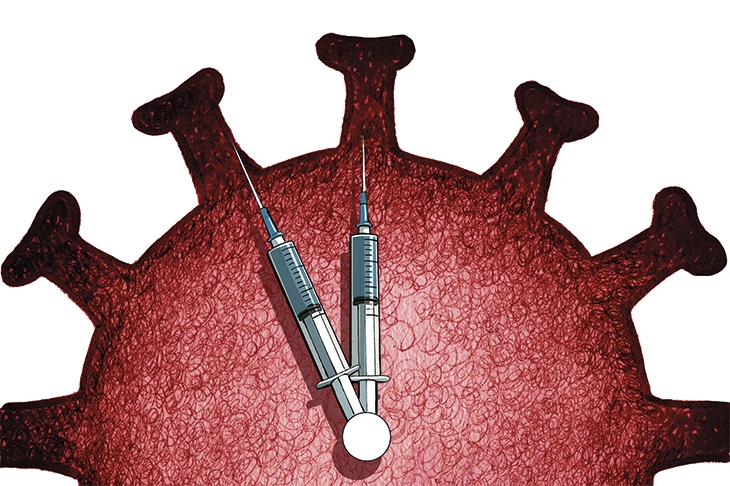Data emerging from Israel suggests that booster vaccines may be more urgent than first thought. Immunity might be waning for those who got their shot in the winter months, according to figures from the Israeli Ministry of Health. The analysis shows that someone over 60 who received their second dose in January is three times more likely to be reinfected than an over-60 vaccinated in May. On the surface, it sounds like bad news. Yet in reality, it is nothing that we wouldn’t expect.
While we collectively gawped at the speed and efficiency of their rollout, the Israelis are the first global example of long-term COVID vaccine effect. We have to be careful when jumping to conclusions. Nevertheless, there are several questions we should ask. Waning immunity is certainly one explanation for their observations. But surely it was the vulnerable who were vaccinated earliest? What is the age of those infected and subsequently hospitalized? Does combining all over-60s into one group account for the different health profiles among them? How does the Indian variant influence this pattern? More analysis will inevitably follow to flesh this out.
If protection does wane, that really shouldn’t surprise anyone. It is inevitable that as time rolls on, in the absence of getting the virus, antibody levels will plateau and decline, leaving the door slightly ajar. Antibody decline has certainly already been seen in the months following the second dose. Once peak antibodies are reached, their half-life is about 55 days, and someone may expect a negative antibody test about eighteen months later. If a vaccine provides 95 percent protection against symptomatic disease one month after the second dose, we could expect that to drop to about 85 percent six months later, which effectively triples the risk of a symptomatic case.
On a positive note, significant declines in antibodies does not mean vaccines don’t work in the real world. Immune memory, composed of cells that can attack other virus-infected cells and ramp up antibody production, will likely linger for many years, reducing the severity of future infections.
The global rise of the Delta variant hasn’t spared Israel either. Laboratories have confirmed that the vaccine efficacy drops slightly with the Indian variant compared to earlier strains. What could be happening in Israel is that the rise of the Indian variant is coinciding with a steady decline in the quality and quantity of antibodies. Therefore, any loss of efficiency in the vaccines may be made worse by the variant. The sum of two negatives is a bigger negative. Israel also opted for a 21-day dose interval, whereas the UK and other countries have gone for a larger gap. There is some evidence that waiting may boost the production of antibodies.
We should be humble in making predictions about the first coronavirus vaccines entering the global population. Putting a firm figure on real-world vaccine effectiveness is like hitting a moving target. Whichever way we choose to look at the data, the virus will continue to fire warning shots, and we must be ready to dodge them.
Andrew Croxford is an immunologist with a career spanning academia and industry, specializing in the inflammatory mechanisms driving human disease. This article was originally published on The Spectator’s UK website.


















